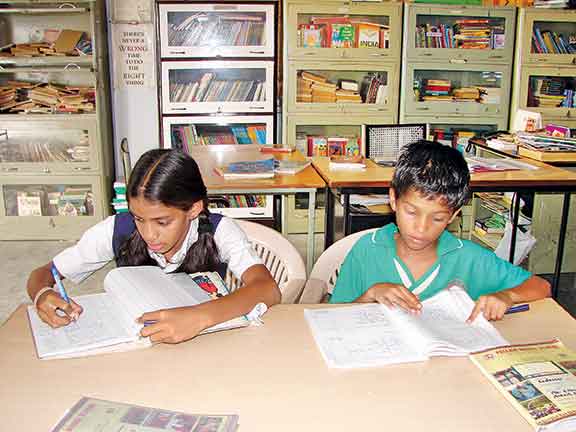Uma Shankar Singh
Germaine Greer (Australian writer) once said, “Libraries are reservoirs of strength, grace, and wit, reminders of order, calm and continuity, lakes of mental energy, neither warm nor cold, light nor dark…. In any library in the world, I am at home, unselfconscious, still and absorbed.” As I ponder over these lines I wonder how much truth there is in this statement in today’s ever-changing world, where people have doubts regarding the importance of libraries due to the advent of newer mediums of acquiring knowledge.
As technology advances it is also becoming cheaper to make smart phones and tablets more affordable to the general public. With easy access to technology, knowledge and information are now just a click away. For the ‘instant’ generation, therefore, Google becomes the answer for everything. But, will knowledge acquired through Google really benefit the student or just leave him/her more confused about a certain concept or idea? As Neil Gaiman (author) said, “Google can bring you back 100,000 answers. A librarian can bring you back the right one.” I too believe that libraries are definitely here to stay, and they will remain the most significant part of any student’s life. No matter how well search engines might be optimized for various keywords, there is no substitute for what a good librarian can offer a student. Search engines don’t have feelings and even though they might provide more information than a librarian, the Internet will not be able to probe or prod the student and help her arrive at the exact piece of information that he/she wants. Moreover in the thousands of answers that they give you for your one question, search engines will also provide contradictory versions thereby causing rather than clearing confusion. A librarian on the other hand has the power to look through a child, understand his/her feelings, determine his/her ease or discomfort with a new language, understand a child’s culture and then decide which book might offer the best learning experience to a specific child. It’s essential that a child learns to use both library resources as well as the Internet in a balanced manner. And that’s something that the Elementary, Middle and High School Collaborative Inquiry Centres (CIC = libraries) at AISC have effectively achieved so that each child’s personality develops holistically. Libraries are those essential elements of any school which perfectly bridge the gap between knowledge, technology, and feelings, wherein a librarian is the guiding light for a student and has a great responsibility on his/her shoulders than simply checking in or checking out books.
There are other intrinsic values I associate with the habit of searching for books and reading at the library that definitely shape the character of any individual. Those values are effort, self-worth and the evolution of a reading culture. When one makes a deliberate effort to find a book, I believe that that individual is more determined/passionate to learn because there’s a process through which that information was obtained, which is quite unlike finding something on the Internet. Library is not only a place to obtain knowledge about various interests and genres but it’s also an engaging and interactive environment where ideas can be shared and new ways of looking at concepts and ideas be evolved. With so many genres of books available in a library there is a wide array of experiences that a child can accumulate over the years while reading in a library fostering his/her development, creativity, and imagination in the most unique ways. Most of all, a library is a place that takes into account the feelings and cultural differences of students integrating classroom learning with new knowledge.
As parents and teachers, we have a significant responsibility to foster the reading habit within a child from the early years, but what’s equally important is to create that sense of feeling that library isn’t just a place for checking out books to read but that it is a place that will help evolve thinking which otherwise would be limited to the classroom environment. It’s an environment that lets a child acquire knowledge about his/her strengths and weaknesses while offering knowledge of the world. The key to success is to acquire knowledge, share it with others, come up with new thoughts and ideas and create something new. What better place is there to do this than the school library?
The author works at the American International School of Chennai as an Elementary School Teaching Assistant at the Collaborative Inquiry Centers. He can be reached at sumashankar@aischennai.org.

